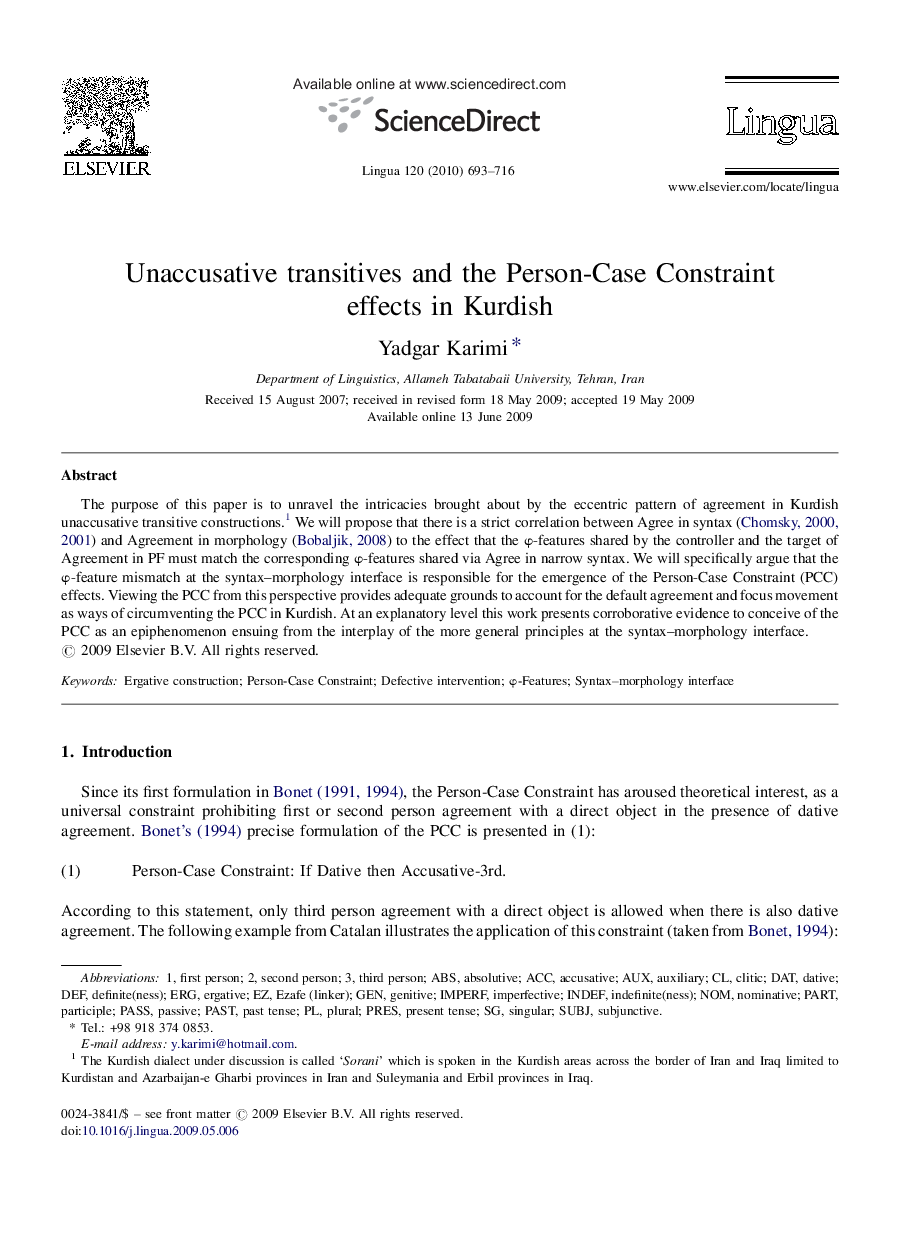| کد مقاله | کد نشریه | سال انتشار | مقاله انگلیسی | نسخه تمام متن |
|---|---|---|---|---|
| 936310 | 924004 | 2010 | 24 صفحه PDF | دانلود رایگان |

The purpose of this paper is to unravel the intricacies brought about by the eccentric pattern of agreement in Kurdish unaccusative transitive constructions.1, We will propose that there is a strict correlation between Agree in syntax (Chomsky, 2000, 2001) and Agreement in morphology (Bobaljik, 2008) to the effect that the φ-features shared by the controller and the target of Agreement in PF must match the corresponding φ-features shared via Agree in narrow syntax. We will specifically argue that the φ-feature mismatch at the syntax–morphology interface is responsible for the emergence of the Person-Case Constraint (PCC) effects. Viewing the PCC from this perspective provides adequate grounds to account for the default agreement and focus movement as ways of circumventing the PCC in Kurdish. At an explanatory level this work presents corroborative evidence to conceive of the PCC as an epiphenomenon ensuing from the interplay of the more general principles at the syntax–morphology interface.
Journal: Lingua - Volume 120, Issue 3, March 2010, Pages 693-716